Back in Spain after two weeks in London. Went straight to the market to see what was new and was delighted to see the new crop of olives ready for curing. Although the hills all around and way beyond are carpeted with olive trees, it’s not always easy to find fresh olives for preparing at home. Even more difficult is to find a shop that also has a crusher which cracks the olives and lets the bitter juices come out. Cracking them one by one with a knife and mallet is a long and messy job which Ive done in the past. But today I was in luck – full crates of freshly harvested olives and a crusher.
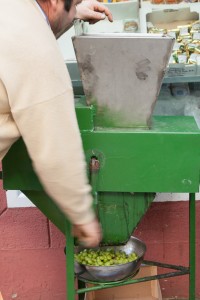
With my 4kg of cracked olives oozing oil in a plastic bag, I made my next stop at the stall run by the gypsies outside the market. They are a husband and wife team who make their living by selling wild foods from the area . Depending on the season, that can be anything from snails to prickly pears (cactus fruit), nuts, figs and wild asparagus. I always found them a bit intimidating but recently I’ve been taking photos of them and giving them copies so they were very happy to see me arriving with an envelope of recent prints today. Right now they are selling nuts – chestnuts, walnuts and almonds. We bought a big bag of fresh almonds.
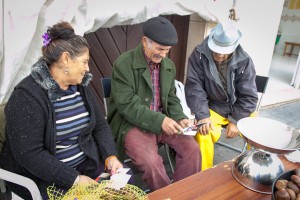
 checking out the pics
checking out the picsI can’t help wondering how long people like this will survive. So much of the produce in Spain is owned by cooperatives and the number of people who sell natural foods is dwindling rapidly. The concept of farmers markets doesn’t really exist here and local markets have become increasingly sterile so it’s always a pleasure to find people selling stuff that has come straight from the source.
And as for my olives, they are now soaking in a big pot of water. I have to rinse them daily for about 6 days before putting them in jars with brine.
The brine solution is simply salt and water – enough salt to make an egg float.
Preserving Olives
- Place the cracked olives in a big bowl of water. Rinse every day for about 5-6 days. If you like the bitterness in cured olives then 4-5 days will be enough.
- Fill a clean jar with olives and wedges of lemon, fresh herbs and spices of your choice. (fennel/cumin/coriander seed/bay…) You can add cloves of garlic but I find it gets a horrible taste as it gets old. (No problem if you are going to use them up fast.)
- Mix a brine solution – water and salt – enough salt to make an egg float. Pour over the brine solution to fill the jar.
- Cover the olives with a layer of olive oil. Seal and leave them in a dark place for a few weeks. Once opened, store them in the fridge so they don’t get soft.
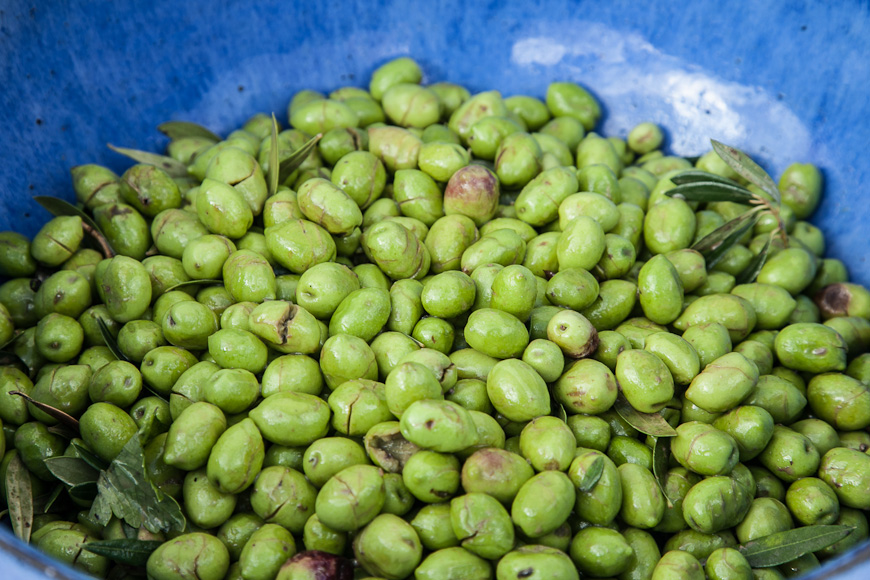
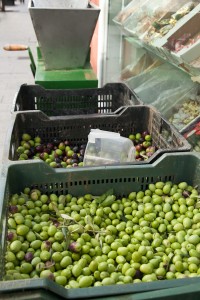
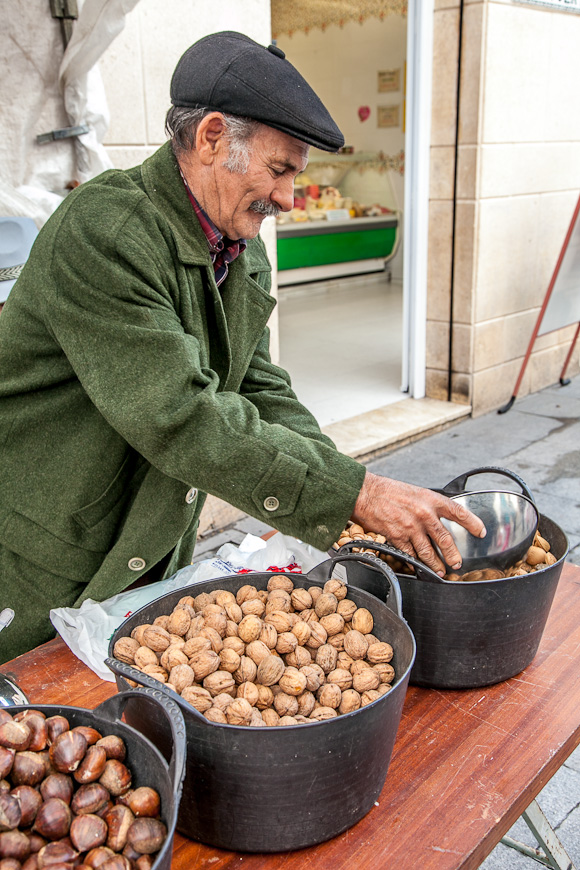

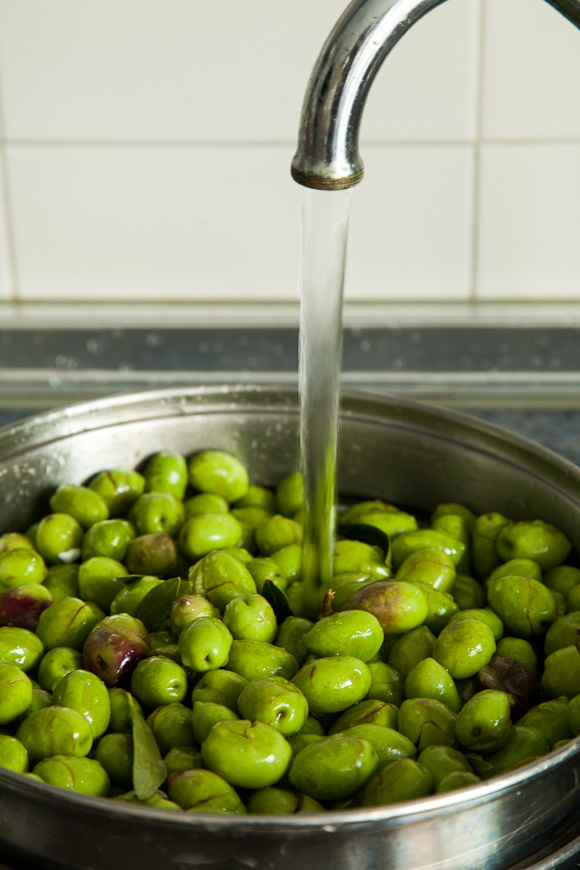
Emily says
Love what you are doing now and always!
Maxine Stewart says
Love your life!!
Fiona says
Great Sharon, beautiful images as always and very interesting!
Josée says
Happy to subscribe to see your wonderful photos and read your blog.
Mary Wendling says
Gorgeous!
Joy McWhirter says
Yes, please!
Eleanor says
I always wondered how olives went from bitter to delicious! Remember trying one straight from the tree (on the Mount of Olives of course) – ugh!!
Wonderful photos. Thanks
Amelia says
Las aceitunas con adobo casero no tienen nada que ver con las comercializadas…. I really hope I can taste the new batch!!!
Néstor octavi says
Me parece una investigación realmente interesante, es totalmente como lo describe, las aceitunas tienen un gran valor por su aporte de nutrientes, son un alimento muy importante en la dieta mediterránea, y su conservación en crudo frescas en un medio ácido, (vinagre, limón, o sal). acuoso, junto con el aporte oleoso de las Olivas . Hacen que sea un alimento que podemos tomar con frencuencia.
Preciosas fotos, felicidades